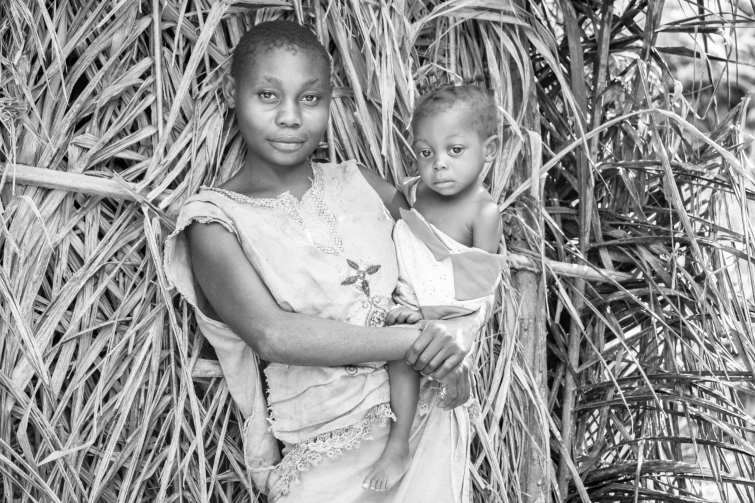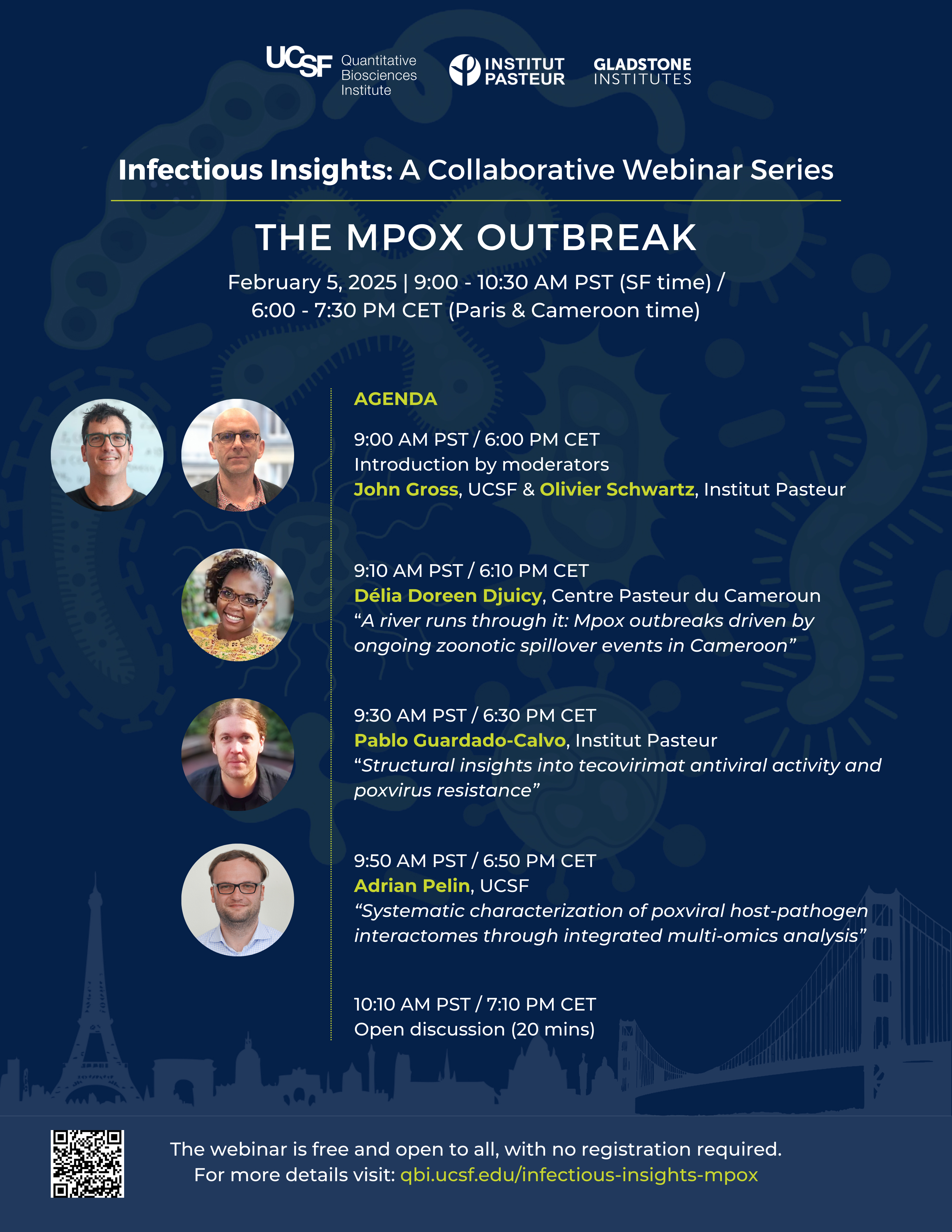
 Agenda
Agenda
Sharing progress and scientific events related to the Institut Pasteur-UCSF-Gladstone Institutes program: newsletter and webinars
The partnership between the Quantitative Biosciences Institute at the University of California San Francisco (QBI UCSF) and the Institut Pasteur, initiated in 2023 by Nevan Krogan and Carla Saleh, is developing and taking shape.
 A large-scale program
A large-scale program
The program now includes Gladstone, an independent research institute closely associated with UCSF, with several scientists holding professorships at UCSF. This partnership between the Institut Pasteur, QBI at UCSF and Gladstone combines complementary expertise in infectious diseases, diagnostics and therapeutics.
For the Institut Pasteur, the coordinators of the partnership are Mélanie Hamon, Head of the Chromatin and Infection Unit, and Olivier Schwartz, Head of the Virus and Immunity Unit. For UCSF, the coordinators are Melanie Ott, Director of the Gladstone Institute of Virology, and Nevan Krogan, Director of the Quantitative Biosciences Institute (QBI), with Céline Perier (program manager).
By bringing together the Institut Pasteur's expertise, Gladstone's advances in synthetic virology, immunology and vaccine development, and QBI's state-of-the-art mass spectrometry and artificial intelligence techniques, the consortium can offer a unique approach to tackling the challenges of pandemics, from research to large-scale implementation.
The main objectives of this three-way partnership are:
• To promote inter-institutional collaboration and capitalize on existing partnerships with the aim of identifying high-impact, high-synergy research fields such as vaccine development, mass spectrometry and artificial intelligence.
• To respond to global challenges associated with infectious diseases: strengthening pandemic preparedness, improving forecasting and treatment capabilities, and exploring major innovations such as novel treatments and preventive measures.
• To expand the program to a global level, strategically integrating new institutions with unique resources and expertise in different regions so that the initiative can become a truly international project.
• To develop innovative strategies for early detection, treatment and prevention of future pandemics, while strengthening international collaboration to improve global health capabilities.
The initiative will include flagship measures such as the introduction of mini-sabbaticals, travel grants for women, incentive measures for collaborative research, symposiums and webinars.
 Informing partners and beyond
Informing partners and beyond
At the beginning of 2025, to improve the visibility of the challenges, measures, advances, partners, organization, leaders and major events associated with the program, the Institut Pasteur-UCSF-Gladstone Institutes initiative launched a newsletter that you can sign up to.
Check out the first issue here
 Organizing webinars for the scientific community
Organizing webinars for the scientific community
 Another aim of the program is to invite experts to speak about scientific topics and stimulate debates and discussions within the scientific community.
Another aim of the program is to invite experts to speak about scientific topics and stimulate debates and discussions within the scientific community.
The next event will be held on February 5, from 6 to 7.30pm (Paris and Cameroon time). This first webinar, part of a series entitled "Infectious Insights: a Collaborative Webinar Series," will look at the topic "The Mpox Outbreak," with presentations by Délia Doreen Djuicy from the Pasteur Center in Cameroon, Pablo Guardado-Calvo from the Institut Pasteur in Paris, and Adrian Pelin from UCSF.
Join the webinar
![]() An initiative to encourage sharing and discussions
An initiative to encourage sharing and discussions
The overriding aim of these events and activities is to strengthen scientific collaboration between the institutions by means of discussions, joint research projects and seminars. Find out more by taking part in the various opportunities for discussion.
